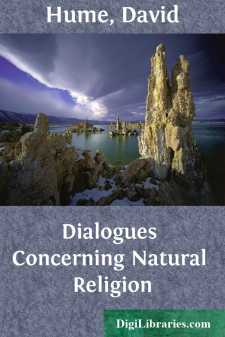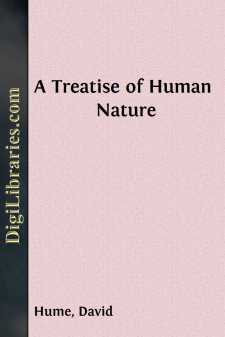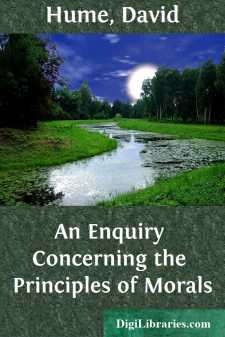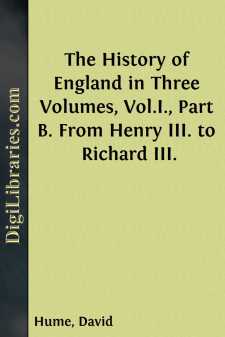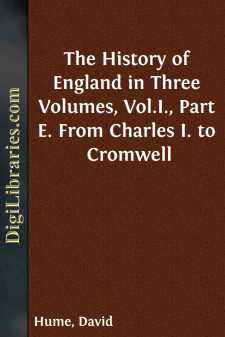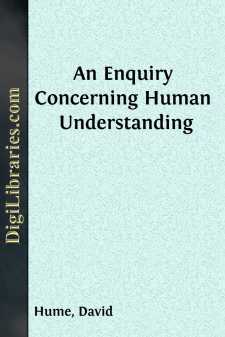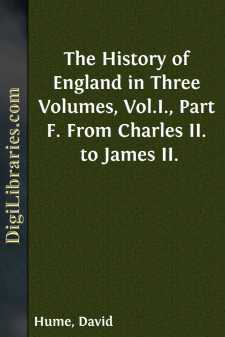Categories
- Antiques & Collectibles 13
- Architecture 36
- Art 48
- Bibles 22
- Biography & Autobiography 815
- Body, Mind & Spirit 144
- Business & Economics 28
- Children's Books 18
- Children's Fiction 14
- Computers 4
- Cooking 94
- Crafts & Hobbies 4
- Drama 346
- Education 58
- Family & Relationships 59
- Fiction 11833
- Games 19
- Gardening 17
- Health & Fitness 34
- History 1378
- House & Home 1
- Humor 147
- Juvenile Fiction 1873
- Juvenile Nonfiction 202
- Language Arts & Disciplines 89
- Law 16
- Literary Collections 686
- Literary Criticism 179
- Mathematics 13
- Medical 41
- Music 40
- Nature 179
- Non-Classifiable 1768
- Performing Arts 7
- Periodicals 1453
- Philosophy 65
- Photography 2
- Poetry 896
- Political Science 203
- Psychology 44
- Reference 154
- Religion 515
- Science 126
- Self-Help 85
- Social Science 82
- Sports & Recreation 34
- Study Aids 3
- Technology & Engineering 59
- Transportation 23
- Travel 463
- True Crime 29
David Hume
David Hume was a Scottish Enlightenment philosopher, historian, economist, and essayist, known for his influential works on empiricism and skepticism. Born in 1711, his most famous works include "A Treatise of Human Nature" and "An Enquiry Concerning Human Understanding," which challenged the foundations of human knowledge and religion. Hume's ideas about human cognition and the limits of reason had a profound impact on later thinkers, contributing significantly to the development of modern philosophy and the empirical sciences.
Author's Books:
Sort by:
by:
David Hume
The religion of the Britons was one of the most considerable parts of their government; and the druids, who were their priests, possessed great authority among them. Besides ministering at the altar, and directing all religious duties, they presided over the education of youth; they enjoyed an immunity from wars and taxes; they possessed both the civil and criminal jurisdiction; they decided all...
more...
by:
David Hume
PART 1 After I joined the company, whom I found sitting in CLEANTHES's library, DEMEA paid CLEANTHES some compliments on the great care which he took of my education, and on his unwearied perseverance and constancy in all his friendships. The father of PAMPHILUS, said he, was your intimate friend: The son is your pupil; and may indeed be regarded as your adopted son, were we to judge by the pains...
more...
by:
David Hume
INTRODUCTION. Nothing is more usual and more natural for those, who pretend to discover anything new to the world in philosophy and the sciences, than to insinuate the praises of their own systems, by decrying all those, which have been advanced before them. And indeed were they content with lamenting that ignorance, which we still lie under in the most important questions, that can come before the...
more...
by:
David Hume
Had the subscribers of this zealous league been content only to demand a toleration of the new opinions, however incompatible their pretensions might have been with the policy of the church of Rome, they would have had the praise of opposing tyrannical laws, enacted to support an establishment prejudicial to civil society: but it is plain that they carried their views much further; and their practice...
more...
by:
David Hume
SECTION I. OF THE GENERAL PRINCIPLES OF MORALS. DISPUTES with men, pertinaciously obstinate in their principles, are, of all others, the most irksome; except, perhaps, those with persons, entirely disingenuous, who really do not believe the opinions they defend, but engage in the controversy, from affectation, from a spirit of opposition, or from a desire of showing wit and ingenuity, superior to the...
more...
by:
David Hume
The bishop of Valence, a prelate of the house of Savoy, and maternal uncle to the queen, was his chief minister, and employed every art to amass wealth for himself and his relations. Peter of Savoy, a brother of the same family, was invested in the honor of Richmond, and received the rich wardship of Earl Warrenne; Boniface of Savoy was promoted to the see of Canterbury: many young ladies were invited...
more...
by:
David Hume
MY OWN LIFE. It is difficult for a man to speak long of himself without vanity; therefore I shall be short. It may be thought an instance of vanity that I pretend at all to write my life; but this narrative shall contain little more than the history of my writings; as, indeed, almost all my life has been spent in literary pursuits and occupations. The first success of most of my writings was not such...
more...
by:
David Hume
The ill humor of the commons, thus wantonly irritated by the court, and finding no gratification in the legal impeachment of Buckingham, sought other objects on which it might exert itself. The never-failing cry of Popery here served them in stead. They again claimed the execution of the penal laws against Catholics; and they presented to the king a list of persons intrusted with offices, most of them...
more...
by:
David Hume
102. I was lately engaged in conversation with a friend who loves sceptical paradoxes; where, though he advanced many principles, of which I can by no means approve, yet as they seem to be curious, and to bear some relation to the chain of reasoning carried on throughout this enquiry, I shall here copy them from my memory as accurately as I can, in order to submit them to the judgement of the reader....
more...
by:
David Hume
An act was passed for the security of the king's person and government. To intend or devise the king's imprisonment, or bodily harm, or deposition, or levying war against him, was declared, during the lifetime of his present majesty, to be high treason. To affirm him to be a Papist or heretic, or to endeavor by speech or writing to alienate his subjects' affections from him; these...
more...



